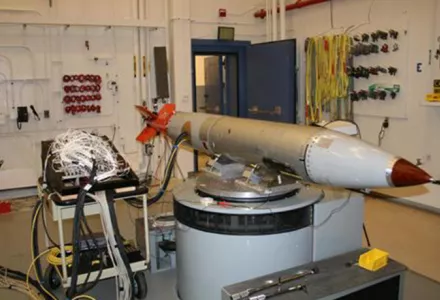Although the United States and Russia claim to have eliminated tens of thousands of nuclear weapons, neither side has verified these claims. Arms control treaties like New Start provide verification only at the level of delivery vehicles, the nuclear warheads are exempt from verification. The problem is secrecy. Despite fifty years of research, no country has developed a way to test whether a purported warhead is real without putting classified design information at risk. Professor Scott Kemp of MIT will present what may be the first solution to this longstanding problem, drawing on new developments in mathematics, information theory, and experimental nuclear physics. The history of the challenge, and a description of the new method, will be presented at a level suitable for a policy audience.
R. Scott Kemp is the Norman C. Rasmussen Assistant Professor of Nuclear Science and Engineering at MIT, and director of the MIT Laboratory for Nuclear Security and Policy. His research combines physics, information science, politics, and history to help define policy options for achieving international security under technical constraints. He works primarily on direct verification of nuclear-warhead dismantlement, the detection of clandestine nuclear programs, and on emerging nuclear technologies that either complicate or advance international security.
In 2010 and 2011, he served as Science Advisor in the U.S. State Department's Office of the Special Advisor for Nonproliferation and Arms Control where he was responsible for framing the technical negotiations on Iran's nuclear program. He has served on the American Physical Society's Panel on Public Affairs and was principal drafter of its positional statement on climate change. He is the recipient of the NEC Award in Computation and Communication and the 2016 Sloan Research Fellowship in Physics. He received his Ph.D. from Princeton University in Public and International Affairs, and a bachelor's in Physics from the University of California, Santa Barbara. At MIT he teaches courses on nuclear power, civil society, and on reducing the dangers of nuclear weapons

